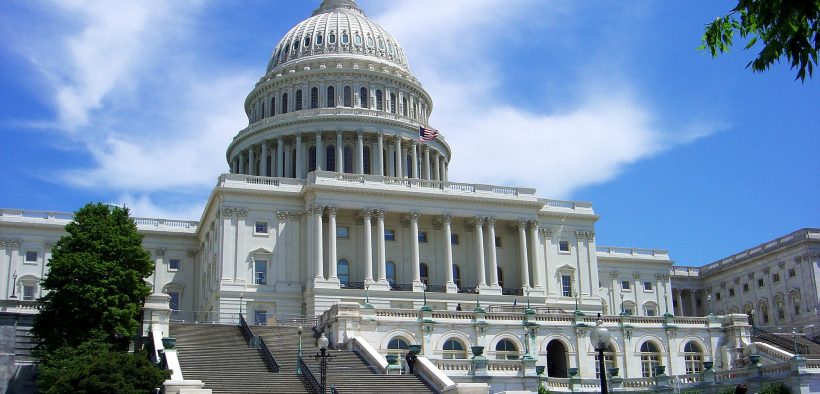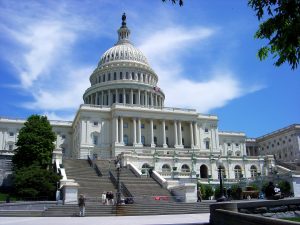Senate Hearing Examines Political Role of Tax-Exempt Organizations

Organizations have abused their tax-exempt status to flood American politics with “a torrent of dark money” totaling more than $1 billion over the past 12 years, said Senator Sheldon Whitehouse (D-RI) during his opening statement at Wednesday’s Tax Subcommittee hearing on “Laws and Enforcement Governing the Political Activities of Tax-Exempt Organizations.”

“Special interests began to rig our elections from behind a veil of organizations formed under
Section 501(c)(4) of the Internal Revenue Code,” said Whitehouse, who urges the Internal Revenue Service to clarify its rules and step up its prosecution of wrongdoers.
But in his opening statement, Senator John Thune (R-SD) said the IRS has mismanaged past efforts to limit abuse by tax-exempt organizations, failed to “ensure that Americans’ private tax-related information is protected,” and gone after conservative and Tea Party groups because of their “underlying political philosophy.”
Whitehouse disagreed with the claim that conservatives were targeted. “Let me set the record straight—this is false.”
Thune claimed most of the groups abusing their tax-exempt status were liberal, saying “15 of the most politically active nonprofit organizations that generally align with the Democrat Party spent more than $1.5 billion in 2020—hundreds of millions of dollars more than a comparable sample group aligned with the Republican Party.”
Section 501(c) of the Internal Revenue Code lists 28 different categories of organizations that are largely exempt from Federal income tax, but the Tax Subcommittee is focusing on potential abuse in these four categories:
- 501(c)(3) charitable organizations, including churches and many religious nonprofits;
- 501(c)(4) social welfare organizations that can lobby for legislation but are prohibited from direct or indirect participation in political campaigns;
- 501(c)(5) labor organizations;
- 501(c)(6) trade associations and business leagues.
MinistryWatch has reported on problems related to political activity of nonprofit groups, including stories on how Donor Advised Funds such as the National Christian Foundation channel tax-exempt donations to political groups, and how get-out-to-vote organizations such as My Faith Votes claim they are non-partisan while promoting only Republican candidates.
Access to MinistryWatch content is free. However, we hope you will support our work with your prayers and financial gifts. To make a donation, click here.
Politicians from both parties benefit from the abuse of the tax code but they differ over who’s responsible, claiming that those on the other side are guilty of the greatest abuse. But they agree on one thing: abuse has skyrocketed since 2010 and the Supreme Court’s controversial Citizens United decision, which according to the Brennan Center for Justice, “reversed century-old campaign finance restrictions and enabled corporations and other outside groups to spend unlimited funds on elections.”
On Wednesday, Ann Ravel, the Former Chair of The Federal Election Commission, testified that IRS rules and enforcement problems had made matters worse. “Organizations that have tax exempt status are a major source of anonymous large political contributions, because donors are not required to identify themselves either to the IRS or to the public.”
Ravel said the consequences of the 2010 Citizens United decision could be seen in the 2012 election cycle when “at least $250 million passed through the C4s into efforts to elect candidates, an 80-fold increase from eight years prior…Since the IRS rule enacted in 2020 eliminated donor reporting requirements to the IRS, the problem of political dark money has been exacerbated.”
Brad Smith, another former FEC Chair and founder of the Institute for Free Speech, said there are dangers in tougher enforcement because the IRS has an unfortunate history of targeting political opponents with the information groups are forced to disclose to the agency.
Philip Hackney of the University of Pittsburgh School of Law used his testimony to question whether private foundations should retain their preferred tax status because of their history of widespread abuse.
Scott Walter, President of the Capital Research Center, a conservative organization that focuses on political spending by liberal groups such as the Ford Foundation, says legislators should focus on abuse by 501(c)(3) groups, which supplied a “river of money” worth approximately $20 billion in the 2018 cycle.
“These kinds of political operations by exempt organizations disturb many Americans,”
said Walter. “Across the political spectrum, people see exempt organizations enjoying elite power and wealth, and employing it in anti-democratic ways.”
Walter also said 501(c)(3) charities such as My Faith Votes should not be allowed to fund or execute voter registration and get-out-the-vote activities.
“Those activities are only legal now if (c)(3)s carry them out in nonpartisan fashion, but in this age of microtargeting, there is far too high a risk that they will not be carried out in such a fashion,” Walter said.
Senators Whitehouse and Thune have not indicated if the hearing will lead to legislation addressing these challenges.



